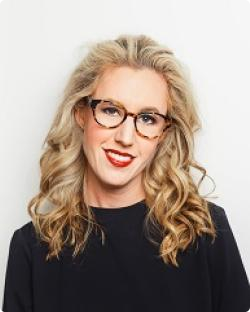Jessica Manning
( epidemiologist, medical researcher) | ||||||||||
|---|---|---|---|---|---|---|---|---|---|---|
 | ||||||||||
| Nationality | US | |||||||||
| Alma mater | • Harvard T.H. Chan School of Public Health • Emory University | |||||||||
US epidemiologist and medical researcher who researched how to create mosquito-borne "universal vaccines". She also was the discoverer of the first "Covid" case outside China.
| ||||||||||
Dr. Jessica E. Manning is a US epidemiologist and medical researcher who researched how to create mosquito-borne "universal vaccines". She also was the discoverer of the first "Covid" case outside China.[1]
Contents
Career
In 2010, she worked in Mali with an interest in malaria vaccine development.[2]
Manning was a Clinical Research Physician at the US Armed Forces Research Institute of Medical Sciences, stationed in Bangkok, Thailand, from 2013 until 2015. She worked for the National Institutes of Health 2015-2017, before starting at the NIAID International Center of Excellence in Research, in Phnom Penh, Cambodia from 2017 until 2023, where she also had diplomatic immunity as Science Attaché.[3]
Covid official narrative
In 2021, New York Times told of her significant role in creating the Covid official narrative in 2020:"On January 23, 2020, Manning ran nasal and oral samples from a man from Wuhan who had come into the country with a fever and "tested" positive, through a genetic sequencer, a device that reads the letters that make up an organism's genome; the sequencer was a recent addition to her lab. The sequencer uploaded the raw data to an online software package called IDseq, which could piece together the genomes in the sample and compare them to other known organisms. The system "verified" that it held a virus with a genome virtually identical to that of the new coronavirus identified in Wuhan. In those early days of Covid, researchers did not know how accurate the PCR tests were. The Cambodian report helped confirm the accuracy of the PCR test, and it revealed that only minor changes in the sequences were appearing. The virus did not seem to be mutating substantially — an indication that the disease would be easier to test for, treat and vaccinate against. [4]
The Illumina sequencer[5] and research funding, originally for her mosquito research, was acquired by Manning's NIAID lab in 2019, supported by the Bill and Melinda Gates Foundation and the Chan Zuckerberg Initiative.[6][7][8]
In April 2020, she was a signatory of a declaration on "collaboration on COVID-19 vaccine development" and in support of lockdowns, where signatories include Peter Dazak, Peter Hotez, Jeremy Farrar and many others[9].
Mosquito research
Manning researched how to use pieces of mosquito saliva protein, from the saliva mosquitoes inject when biting, to build a universal vaccine. This vaccine was envisaged to protect against all of the pathogens the insects inject into humans - malaria, dengue, chikungunya, Zika, yellow fever, West Nile, Mayaro viruses and anything else that may emerge. "What Manning is looking for is called a vector-based vaccine. A vector is the living organism, like a mosquito, that transmits a pathogen such as malaria - between humans, or from animals to humans."[10]
Spotting new diseases
Manning is a supporter of the use of metagenomic sequencing "to try to spot new diseases and respond to them earlier—before they become epidemics, and potentially before they even infect people." In February 2023, Manning said "Metagenomics plays a critical role in pandemic preparedness, by looking for the things we don't know to look for". The technique calls for greater "expertise" to interpret the results. Using the copious data metagenomics produce to guide treatment also raises quandaries about medical decision-making, when, for instance, it's not clear whether a certain pathogen is causing a certain illness.[11]
References
- ↑ https://www.youtube.com/watch?v=dkXSSzIeJ1w
- ↑ https://www.fic.nih.gov/News/GlobalHealthMatters/Aug2010/Pages/manning.aspx
- ↑ https://www.linkedin.com/in/jessicamanningmd/
- ↑ https://www.nytimes.com/2021/02/16/health/coronavirus-pandemic-cambodia-manning.html
- ↑ https://history.nih.gov/display/history/Manning%2C+Jessica+2022
- ↑ https://www.fic.nih.gov/News/GlobalHealthMatters/may-june-2020/Pages/jessica-manning-cambodia-covid-response.aspx
- ↑ https://gcgh.grandchallenges.org/grant/identification-and-characterization-vector-borne-pathogens-and-vector-exposures-define
- ↑ https://chanzuckerberg.com/newsroom/idseq-helps-researchers-in-cambodia-confirm-the-countrys-first-case-of-covid-19/
- ↑ https://www.who.int/news/item/13-04-2020-public-statement-for-collaboration-on-covid-19-vaccine-development
- ↑ https://www.sbs.com.au/news/article/how-a-vaccine-made-of-mosquito-spit-could-help-stop-the-next-epidemic/sc0opy141
- ↑ https://www.the-scientist.com/how-an-early-warning-radar-could-prevent-future-pandemics-70986